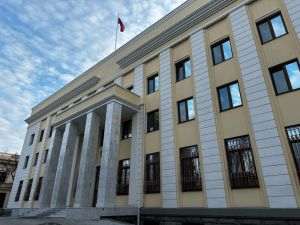A recent World Bank report shows an alarming situation for the world's 26 poorest countries, which are home to 40% of the people most affected by poverty. These economies have reached the highest level of debt in the last 18 years and face increased vulnerability to natural disasters and crises, which has led to a worsening of the economic situation, reports Reuters.
• Significant regression in the fight against poverty
According to the report, these countries, with per capita incomes below $1,145 annually, have regressed in efforts to eradicate extreme poverty, despite the economic recovery seen in other parts of the world after the COVID-19 pandemic. On average, these economies are poorer than before the pandemic, while the rest of the world has largely resumed economic growth. Released ahead of the annual meetings of the World Bank and International Monetary Fund in Washington, the report underscores the urgent need for financing to support the poorest countries. The World Bank aims to raise $100 billion for the International Development Association (IDA), the fund for the poorest economies.
• Dependent on external financing and threatened by debt
These countries increasingly rely on IDA grants and loans, given that access to financing from international markets is extremely limited. With an average debt of 72% of GDP, half of these economies are already either in critical debt situations or at high risk of becoming so. Most of the countries analyzed, such as Ethiopia, Chad and Congo, are in sub-Saharan Africa, but the report also includes states such as Afghanistan and Yemen, where armed conflict and social instability continue to hinder development and investment.
• Multiple crises, from conflicts to natural disasters
The report highlights that two-thirds of these countries are affected by armed conflict or institutional instability, making them vulnerable to global economic fluctuations and natural disasters. These countries rely heavily on commodity exports, which exposes them to volatile business cycles. Natural disasters have had a devastating impact on these economies. Between 2011 and 2023, natural disasters caused annual economic losses of 2% of GDP, five times higher than the average of low- and middle-income countries. This reality underscores the need for substantial investment to help these countries become more resilient in the face of such crises.
• IDA, "lifeline"
World Bank Chief Economist Indermit Gill highlighted the critical role IDA has played in keeping these fragile economies afloat. "At a time when much of the world has simply turned away from the poorest countries, IDA has been their lifeline," said Gill. IDA funds are normally replenished every three years through contributions from countries holding shares in the World Bank. A record $93 billion was raised in 2021, and World Bank President Ajay Banga aims to surpass that mark, targeting pledges of more than $100 billion by December 6, 2024.
The report recommends that these countries make efforts to improve their economic situation through domestic measures, in particular by reforming the tax system. An extensive informal sector, operating outside the tax system, reduces the ability of these economies to collect income. Thus, simplifying taxpayer registration, efficient tax administration and improving public spending are essential measures to create a more sustainable development framework. The World Bank report highlights the immense challenges facing the world's poorest countries. Without major international support and domestic economic reforms, these economies remain highly vulnerable to crises and natural disasters, making it urgent to mobilize funds and efforts to support their long-term development.












































